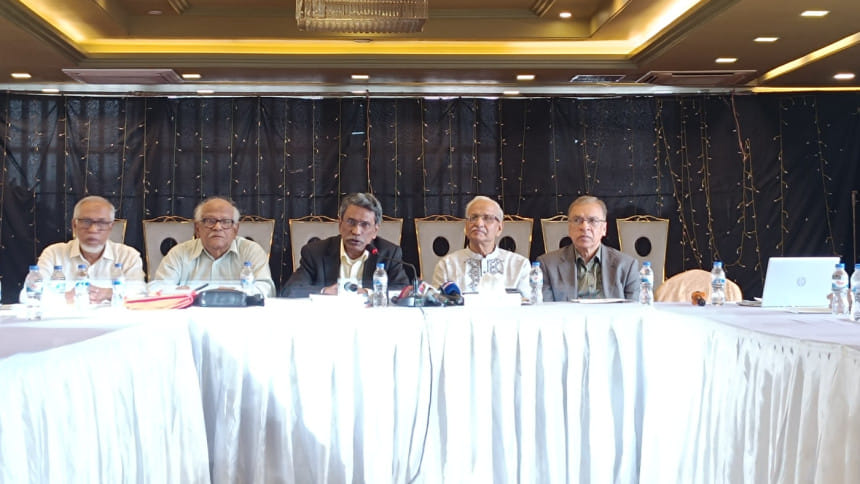Unresolved issues will also be made public for transparency: Ali Riaz

Prof Ali Riaz, vice-chairman of the National Consensus Commission, said today that in addition to highlighting points of agreement reached with political parties, unresolved issues will also be disclosed to the public to ensure transparency.
"We will inform the public about the issues on which consensus has not yet been reached. This is essential for transparency and to help the people make informed decisions in future political processes," he said.
Speaking at a consultation with civil society representatives on national consensus, at the Krishibid Institution in Dhaka, Ali Riaz emphasised the importance of openness in the commission's proceedings.
"In our discussions with political parties, consensus has been achieved on some fundamental issues. However, on other key matters, differences remain due to ideological positions. It is not realistic to expect full agreement on every issue," he said.
Highlighting the role of civil society, Ali Riaz said, "We have invited you [civil society] today because we consider your perspectives vital. Through these discussions, we seek your advice and guidance on our ongoing efforts."
He added that the commission aims to incorporate the civil society's input in both the proposed national charter and its upcoming reports.
"We are working to incorporate these views so that the national consensus we are trying to build is inclusive and broad-based."
Stressing the need for wider engagement, he added, "We've repeatedly stated that dialogue with political parties alone is not enough. There must also be a shared understanding among citizens."
Prof Riaz informed that since its formation in mid-February, the National Consensus Commission has been given a six-month mandate and is now halfway through.
"During this period, we have engaged in detailed discussions with 33 political parties and shared key proposals with them. Many have responded with their initial opinions," he said.
Reflecting on past struggles, Prof Riaz added, "Over the last 53 years, and especially during the last 16 years, the people of Bangladesh have struggled tirelessly. The mass uprising in July and August, marked by sacrifice and bloodshed, has brought us to this point."
"We expect everyone, from their respective positions, will play a proactive role in realising these structural changes. We believe your (civil society) opinions will support and guide us in this critical work," he added.

 For all latest news, follow The Daily Star's Google News channel.
For all latest news, follow The Daily Star's Google News channel. 



Comments